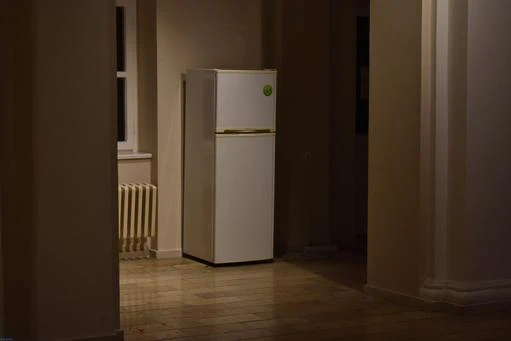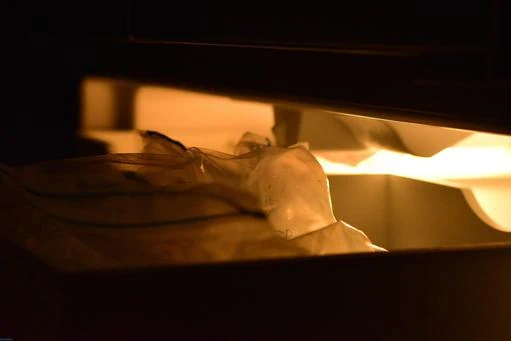Do refrigerators have capacitors? Well, the answer may surprise you. It turns out that many refrigerators do have capacitors, and they play an important role in the proper functioning of the appliance. In this article, we’ll take a closer look at capacitors and how they help keep your fridge running smoothly.
What Are Capacitors?
As you may know, a capacitor is an electrical component that stores energy in an electric field. When connected to a circuit, a capacitor can release this stored energy to help power the circuit. In a refrigerator, the compressor is powered by an electric motor. This electric motor has a start winding and a run winding. The start winding is made of thicker wire than the run winding, so it can handle more current. A capacitor is connected to the start winding to help the electric motor startup. Once the refrigerator compressor is running, the capacitor is no longer needed and is disconnected from the circuit.
Do Refrigerators Have Capacitors?
The answer is yes, refrigerators typically have at least one capacitor. A capacitor helps to store electrical energy and then release it as needed. It helps to regulate the flow of electricity in the fridge so that the compressor can start and stop as needed. Without a capacitor, the fridge would not be able to effectively cool down your food.
Do All Refrigerators Have Capacitors?
No, not all refrigerators have capacitors. Some newer models of refrigerator compressors are designed to start without a capacitor. However, many older model refrigerators and some lower-end models still use a capacitor to help start the compressor. If your refrigerator has a capacitor, it will be located near the compressor, usually on the back of the fridge.
What Happens If The Capacitor Goes Bad?
If the capacitor goes bad, the refrigerator compressor will not be able to start. This can cause the fridge to stop cooling. In some cases, a bad capacitor can cause the refrigerator compressor to make a humming noise but not start.
If the capacitor goes bad, the fridge will not work properly. You may need to replace the capacitor if it is not working correctly.
How To Clean A Refrigerator Capacitor
To clean a refrigerator capacitor, you will need a screwdriver, socket wrench set, and an all-purpose cleaner. First, locate the capacitor on the back of the fridge. It will be a small, silver cylinder with two wires coming out of it. Use the screwdriver to remove the screws that hold the capacitor in place, then pull it out. Next, use the socket wrench set to remove the two nuts that hold the wires onto the capacitor. Finally, clean the capacitor with the all-purpose cleaner and reinstall it. That’s all there is to it!
How To Install A Refrigerator Capacitor On Your Own
If your refrigerator has been acting up, one of the possible causes could be a faulty capacitor. A capacitor is a small electrical component that helps the compressor start-up and keeps it running smoothly. Installing a new capacitor is a relatively easy repair that you can do on your own.
What You’ll Need:
- Refrigerator repair kit (containing a new capacitor)
- Screwdriver
- Wire strippers
- Pliers
1. Unplug your refrigerator from the wall outlet.
2. Locate the old capacitor. It will be a small, round, metal can attached to the compressor with two wires coming out of it.
3. Use the screwdriver to remove the screws holding the capacitor in place. There will be two, one on each side of the can.
4. Gently pull the old capacitor out and set it aside.
5. Take a look at the new capacitor to make sure it is the same size and has the same wire connections as the old one. If so, go ahead and install it in the same spot, screwing it in place with the screws you removed earlier.
6. Reconnect the wires to the new capacitor. The wire strippers will come in handy here, as you’ll need to strip about ½ inch of insulation off the end of each wire before attaching them. Use the pliers to twist the wires around the terminals on the capacitor, making sure they are tight and secure.
7. Plug your refrigerator back in and turn it on. Your fridge should now be running like new!
Electrical Problems With Refrigerator Capacitors
Run capacitor troubles are often the result of an electrical malfunction. Over time, wires may get disconnected or electronics may malfunction. Without this mechanism, the PTC will have no backup, and the compressor may not perform effectively. ‘
You may use a multimeter to test the refrigerator’s start relay to see whether the run capacitor is faulty. However, you should not try this kind of troubleshooting on your own if you do not know how to use a multimeter or have limited expertise in electrical work. When using a multimeter to check the run capacitor’s electrical reading, consult your vehicle’s owner’s handbook.
Other electrical components must be manipulated to fix a run capacitor’s problem. This repair or replacement should only be attempted if the refrigerator is completely unplugged from the main supply. Unplugging the appliance and turning off the circuit breaker are the best ways to ensure that the equipment is completely unplugged. If you forget to unplug the appliance, this additional step will safeguard you.
Refrigerator Run Capacitor Repairs
It’s helpful to know what causes a run capacitor to fail, but how can you tell if that’s the problem? Fortunately, a failed run capacitor frequently makes a distinctive clicking noise that may help you locate the source of the issue. On startup or shutdown, the component may squeak. This is one of the most common signs of a faulty motor run cap.
In either a white or black box beside the compressor, you’ll find this component. You may take the refrigerator away from the wall with the aid of another person and listen to these clicking sounds. Run capacitors are the most likely culprit if you notice a noise coming from the box.
Keeping the surrounding region clean may help prevent problems with the run capacitor. Using a moist cloth, wipe off any dust or debris that has accumulated behind your refrigerator (this should only be done while the device is disconnected). Refrigerators require a little breathing room, so don’t cram the appliance into a corner too firmly against a wall.
Final Thoughts
Do refrigerators have capacitors? The answer is yes, they do! Most major appliances have capacitors. They are an important part of the appliance and help to ensure that it runs smoothly and efficiently. If you are having problems with your refrigerator, it is always a good idea to check the capacitor first. With a little knowledge and a few tools, you can easily test the capacitor and see if it is working properly. If not, then you can replace it with a new one.


